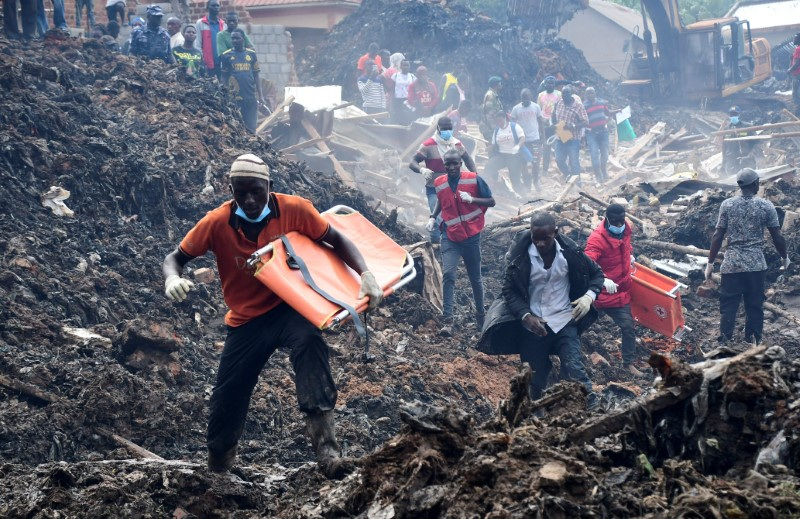A devastating landslide at the Kiteezi rubbish dump in Uganda’s capital, Kampala, has claimed the lives of at least 23 people, according to authorities.
The disaster occurred after torrential rain triggered the collapse of a massive section of the landfill, burying residents, livestock, and homes while many were still asleep.
The initial death toll was reported as eight on Saturday, but as rescue teams continue to search for survivors, the number of confirmed casualties has risen to 23. Fourteen people have been rescued from the debris, along with several animals, but concerns remain that more victims could still be trapped under the rubble.
“The rescue operation is still ongoing until we are sure no one is trapped,” police spokesperson Patrick Onyango said on Sunday, as reported by AFP. He emphasized that the focus remains on finding any remaining survivors.
The landslide has also displaced approximately 1,000 people, according to Onyango. The Uganda Red Cross has responded by setting up tents near the disaster site to shelter those who have been left homeless.
Kiteezi, Kampala’s only landfill, has been in operation for decades and has grown into a massive hill of waste. Residents have long voiced concerns about the environmental hazards and the potential for such a disaster.
Kampala Mayor Erias Lukwago acknowledged the risks, stating on Saturday that “the disaster was bound to happen,” and that the landfill had already reached its capacity.
The tragedy at Kiteezi echoes similar incidents across sub-Saharan Africa, where poorly managed waste sites have led to catastrophic landslides. In 2017, a similar event in Ethiopia’s capital, Addis Ababa, resulted in the deaths of at least 115 people. A year later, in 2018, another landslide at a rubbish dump in Maputo, Mozambique, claimed 17 lives.
Rescue efforts at Kiteezi are expected to continue until authorities can confirm that no more people are trapped in the wreckage.
















